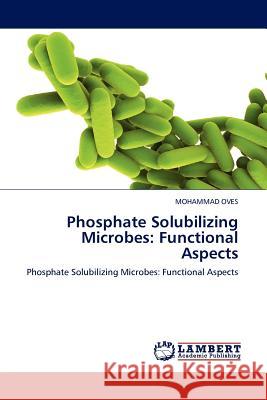Phosphate Solubilizing Microbes: Functional Aspects » książka
Phosphate Solubilizing Microbes: Functional Aspects
ISBN-13: 9783845400648 / Angielski / Miękka / 2011 / 100 str.
Globally, most agronomic soils contain huge reserves of phosphorus, but the fixation and precipitation, cause a major deficiency of Phosphorus in soil, and in turn, hamper the growth of crops seriously. How to improve phosphorus fertilizer efficiency and utilize the potential nutrient in soil has therefore, long been a major concern for field practitioners. This has led to a search for eco-friendly and economically attractive alternative technology for improving crop production in low or even P deficient soils. In this context, natural soil inhabitants endowed with P-solubilizing activity, often termed phosphate-solubilizing microorganisms [PSM], provides a viable substitute to chemical P fertilizers. Inoculation of phosphate-solubilizing microorganisms, like, bacteria and fungi in soil has been shown to immensely affect the growth of plants by making not only P available to plants but also facilitate the growth of plants by other mechanisms leading to higher crop yields.
Globally, most agronomic soils contain huge reserves of phosphorus, but the fixation and precipitation, cause a major deficiency of Phosphorus in soil, and in turn, hamper the growth of crops seriously. How to improve phosphorus fertilizer efficiency and utilize the potential nutrient in soil has therefore, long been a major concern for field practitioners. This has led to a search for eco-friendly and economically attractive alternative technology for improving crop production in low or even P deficient soils. In this context, natural soil inhabitants endowed with P-solubilizing activity, often termed phosphate-solubilizing microorganisms [PSM], provides a viable substitute to chemical P fertilizers. Inoculation of phosphate-solubilizing microorganisms, like, bacteria and fungi in soil has been shown to immensely affect the growth of plants by making not only P available to plants but also facilitate the growth of plants by other mechanisms leading to higher crop yields.











